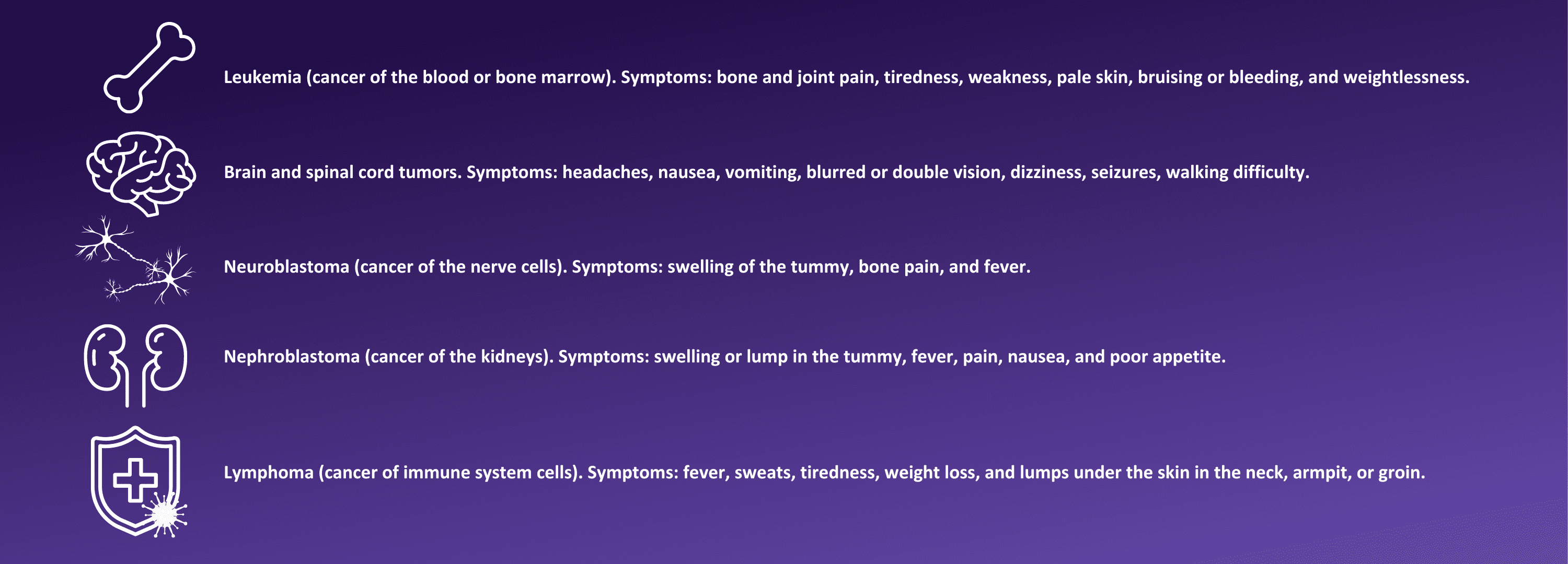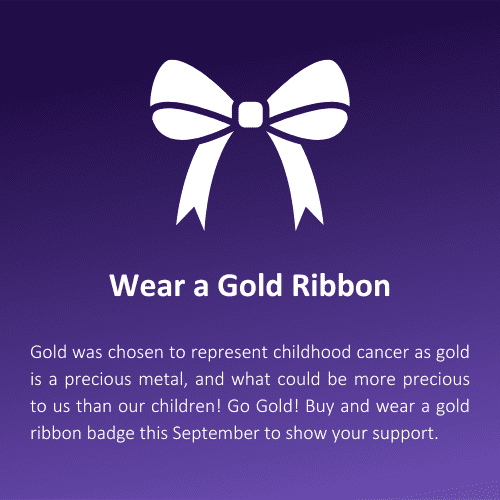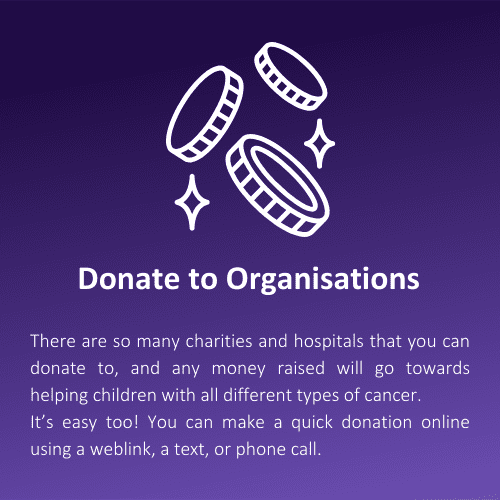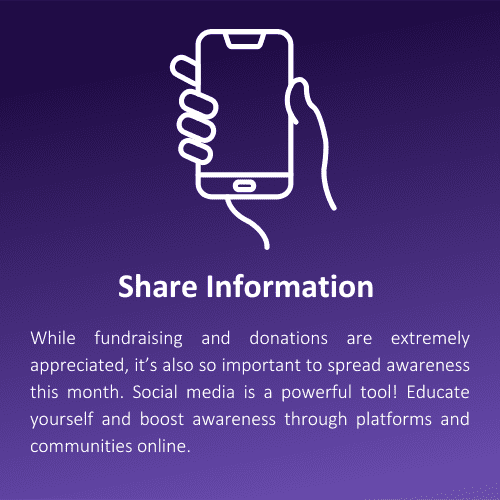September is recognised across the globe as Childhood Cancer Awareness Month. During this time, communities and organizations unite to promote awareness, fundraise for research, and show support to the children and their families.
What is childhood cancer?
Cancer is a leading cause of death in people of all ages. It starts as a genetic change in one cell anywhere in a person’s body, which causes cells to grow uncontrollably into a mass of cells known as a tumor. If the tumor is left untreated, it may spread to other parts of the body. Environmental or lifestyle factors often contribute to causing cancer in adults, such as smoking, alcohol, sunlight, diet, chemical exposure, and aging. However, these factors are not normally the cause of cancers in children. Some children have inherited disorders that increase their risk of being diagnosed with cancer. In other children, mutations occur during fetal development as the cells are rapidly dividing to make the fetus, causing changes in the DNA. However, for most childhood cancers we don’t know exactly what the causes are.

The types of treatments used for childhood cancers vary depending on the age of the child, the type of cancer, and how early the cancer is diagnosed. It is common for medicines to have side effects, however, side effects in children may cause complications as the child ages, since their organs and tissues are still developing. Scientists and doctors around the world are researching potential new medicines for cancers, including childhood cancers. This includes finding cures for cancers that do not yet have treatments, also developing better medicines with fewer side effects (WHO, 2021).
The most diagnosed cancers in children
These are the cancers that are most often diagnosed in children, and some of the common symptoms (American Cancer Society, 2024):

How could you get involved this Childhood Cancer Awareness Month?




Great Ormond Street Charity (GOSH)
Our charity partner in the UK, Great Ormond Street Hospital, provides care to children with different severe diseases including cancer. Their next step is to build a dedicated space for the children and their families: The Children’s Cancer Centre. This area will provide advanced technology for diagnoses, improved wards to accommodate patients and their loved ones, and the facilities to incorporate nutrition, physical activity, and mental wellbeing to each child’s recovery. Alongside these developments, there will be more space for research studies to occur at the hospital. As you may know, cancer treatments can damage healthy cells as well as cancerous cells. This is a particular problem for children, as their bodies are still growing and developing. Researchers are focusing on treatments that not only kill the cancer, but also have no long-term effects on the child (GOSH, 2024). At Innovative Trials, we raise money for Great Ormond Street Hospital throughout the year and are pleased to know that we contribute to the building of this transformative center.
Oliver Patch Project (OPP)
Our US charity partner is the Oliver Patch Project, which is an expansion of an existing relationship. We raise funds at major US conferences that Innovative Trials attend throughout the year, including SCOPE, SCRS, and DIA. Like with our partnership with GOSH, the aim is to contribute towards the fight against childhood cancer in as many ways as possible.
Boost Patient Recruitment and Retention in your Studies:
At Innovative Trials, we have supported many pediatric studies. We understand that recruiting and retaining younger participants can be challenging, so here is a list of some of our top tips:
- Digital and Printed Materials
Tailor patient recruitment materials to two different audiences in your studies: the child and their guardian. Online adverts or social media campaigns are more likely to be seen by younger demographics: make these simple and engaging. Address more of the printed materials to adults, such as the brochures and flyers, ensuring they are informative about the trial but are still easy to understand.
- Parent and Guardian Support
Consider the journey of caregivers of your pediatric cancer participants. From the start, ensure they are well-informed about your study, address their concerns, and think about what else they may need as a parent. Have they got other children to care for? How will they keep themselves, and potentially their other children, occupied during the long study visits? You could have creches at your study sites, retention items that are targeted towards the caregivers, or supply additional retention items for young children.
- Retention Patch Program
Innovative Trials have partnered with Oliver Patch Project to create the Retention Patch Program. This collaboration aims to empower children with cancer and retain their participation in studies through the power of patches. Studies using this program will receive boxes of patches (designed by artists all over the world) to give to pediatric participants at each visit and milestone so they feel their strength, celebrate their involvement, and feel part of a larger community.
- Study Wide Team Communications
Innovative Trials in-country Clinical Enrollment Managers (CEMs) recommend that regular and positive communications are maintained across a study’s recruitment duration. Recruiting is a challenge for most studies and the longer the process, the more likely that the study teams will become fatigued. Sharing news of positive developments and successful strategies aims to motivate site teams to renew their patient recruitment efforts and alter their plans where needed.
- Motivational Workshops
Motivational Workshops are used to gather recruitment teams to share study updates, provide a refresher on studies and allow them the opportunity to discuss their challenges. This will allow other teams that have dealt with similar issues to provide details of their own experiences and how they were able to resolve them. These workshops also serve as a way of increasing focus on a study, where site teams are recruiting for multiple projects simultaneously.
- Building Trust
Many parents are reluctant to agree for their child to take part in a clinical study using a treatment not yet approved. Innovative Trials CEMs encourage that time is taken to ensure that a clear trust is established, time is allowed for serious consideration, and opportunities given to ask questions. Workshops can be used to help site teams understand the most effective approaches and help determine the circumstances for using each of them. Having a medical monitor attend such discussions would help with the studies that have more technical recruitment protocols.
- Developing Referral Networks
Many studies have very small potential participant populations, especially when the illness is rare. The likelihood that significant recruitment will be possible from within any given site’s existing patient population is minimal. Innovative Trials CEMs encourage the development of internal & external referral networks that involve the closest specialized care centers in the area. It’s possible that the teams in these locations may already be aware of potential candidates and could share their own insights into finding the patients that a study seeks.
As Childhood Cancer Awareness Month comes to a close, let’s continue to champion awareness, fundraising, and support for the children and families affected by cancer. Every action, from wearing a gold ribbon to joining fundraising efforts, contributes to a global mission to find better treatments and, ultimately, a cure. With organizations like Great Ormond Street Hospital and the Oliver Patch Project, and innovative approaches in clinical trials, we are making strides in research and patient care. Together, we can drive positive change, offering hope and brighter futures for children facing cancer. Let’s keep the momentum going all year round.
References
- World Health Organization (WHO) (2021). Childhood Cancer: https://www.who.int/news-room/fact-sheets/detail/cancer-in-children
- American Cancer Society (2024). Types of Cancer that Develop in Children: https://www.cancer.org/cancer/types/cancer-in-children/types-of-childhood-cancers.html
- Great Ormond Street Hospital (GOSH) for Children NHS (2024). Children’s Cancer Centre: https://www.gosh.nhs.uk/about-us/redevelopment/childrens-cancer-centre/
- Roswell Park Comprehensive Cancer Center (2021). Top 5 Pediatric Cancers: The Warning Signs: https://www.roswellpark.org/cancertalk/202108/top-5-pediatric-cancers-warning-signs
- Children With Cancer UK (2024). Childhood Cancer Awareness Month 2024 (CCAM): https://www.childrenwithcancer.org.uk/about-us/childhood-cancer-awareness-month/
